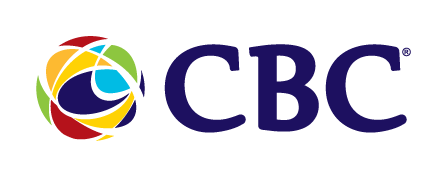There has to be something fundamentally wrong when a group of nations can unilaterally ascribe to themselves the power to regulate tax and financial structures of another country and proceed to shame and bully that nation into compliance.
That is essentially what the European Union (EU) has done with its latest blacklisting of Barbados as a “non-cooperative jurisdiction for tax purposes”. For those who are not versed on the finer details of tax laws will simply hear the words “blacklist” or “non-compliant” and everything associated with white-collar crime immediately comes to mind.
The fancy language of the European Council that while the island was compliant in seven of the ten review areas, will not stop headlines such as “tax haven” and “money laundering centre” from being attached to those not on the “white list”.
Even Reuters, one of the world’s oldest and leading news agencies, carried a misleading and damaging headline this week: “EU adds Barbados, Anguilla to tax haven list”. With its global reach and regard in the news gathering business, its flawed headline is likely to be repeated in publications and online magazines around the financial world.
According to the Reuters story, those who were unfortunate enough to find themselves on the blacklist faced “reputational damage, higher scrutiny in their financial transactions and risk losing EU funds”.
In the midst of a global pandemic that has crippled the economies of industrialised and poor nations alike, the timing of this action by the European Union is deserving of every inch of condemnation it has received from the Barbados Government.
Almost two years ago, Barbados took the bold step of largely converging its domestic and international business tax rates in an attempt to appease the Europeans. But again we find ourselves buckling under another set of legislative and tax requests.
With almost every local company experiencing dramatic declines in profits and are more than likely are in the red, for the EU to slap Barbados with this label non-cooperative, well aware of the current situation of our tourism-dependent economy, is a devastating development.
In fact, we can safely say that Barbados’ corporate tax take for 2020 will almost exclusively come from the international business sector as it has miraculously been able to survive during this pandemic relatively unscathed.
At the recent media launch of Global Business Week 2020, scheduled for October 25 to 31, president of BIBA, the Global Association for International Business, Mr. Derrick Cummins reminded us that no jobs had been lost in the sector as a result of the COVID-19 pandemic and the sector’s contribution to the corporate tax take had remained steady.
For the record, the EU is not a regulator. It has already established agencies such as the Organisation for Economic Cooperation and Development (OECD) and the Financial Action Task Force (FATF), to which the Caribbean Financial Action Task Force has associate status, that are tasked with ensuring anti-money laundering and counter financing of terrorism mechanisms are maintained.
In all this, we must remember that Barbados has already instituted the legislative and policy changes requested of our government following the last peer review by the OECD. The problem Barbados faces is that the OECD concluded that there was insufficient time following the changes for it to fully assess the effectiveness of the legal changes as well as the level of compliance.
In its defence, Government has pointed out to the EU that its action is even more reprehensible when it is recognised that the matters that largely led to the listing were remedied in the last 20 months.
Government has explained that it has amended over 14 pieces of legislation; ensured that requests for exchange of information from other jurisdictions are appropriately answered in accordance with the law; conducted audits and reviews of the Corporate and Trust Service Providers; and has ensured that up to date and relevant beneficial ownership information is properly maintained and accessible by the authorities.
This has seemingly come to naught as EU ignored all the corrective action the island has undertaken to correct the deficiencies of the 2015 to 2018 period.
Barbados is expected to be granted another window of opportunity to have an interim review come February 2021. However, over the next six months much damage can be done to our already fragile economy, the greatest being to our international banking relationships and our ability to seamlessly trade, and make and receive payments for goods and services.
Read our ePaper. Fast. Factual. Free.
Sign up and stay up to date with Barbados’ FREE latest news.







